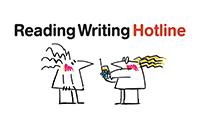30 Jul Volunteer tutors – a key part of the adult literacy landscape in Australia.

While skilled professional teachers and systematic learner-centred programs need to form the backbone of quality provision, individual tutors are often a great first step for learners who are beginning their literacy journey.
There is no national coordination of volunteer literacy tutors. A small number of the qualified literacy teachers on our database also offer to volunteer to help some learners. They play a valuable role tutoring students who need a one-to-one learning option. The Hotline caught up recently with Anne, one of our wonderful tutors, to talk about her work with literacy learners, how she got involved and the things she has learnt. Anne has a teaching background with a Masters in Linguistics and English Literature, and gained an understanding of adult literacy tutor training through an “excellent [literacy] course” run by a local group.
Anne rang the Hotline after being inspired by the SBS TV Lost for Words trailer which talked about changing people’s lives through supporting their literacy learning. She also sees tutoring as “a nice way of giving back”. In her day job Anne works as a ghost writer and editor; skills which have also helped her tutoring work.
One of Anne’s students is Lauren*, a young woman who has struggled with reading and writing due to dyslexia and ADHD. They have been meeting at the local library, along with Lauren’s mother. Anne prefers working face to face as the human interaction is an important component for Lauren, as well as for her.
Anne established an early rapport by listening to Lauren’s stories and being positive about her goals and what she would be able to achieve. From the beginning Anne used a clear, and structured approach and focussed on listening to what her student wanted to do. Every meeting is planned (with a predictable structure) so Lauren knows what is coming up. This approach aided Lauren’s ability to concentrate.
Together they plan what they are going to write, rehearse it and then use voice to text to assist in the process of writing it down. Examples of writing tasks chosen include emails which Lauren needs to send so there is a functional component for her and therefore an added incentive. By the end of the lesson, they have edited the work to complete a polished piece of writing giving an instant sense of success and achievement. Any feedback from the emails is reviewed at the next lesson. This builds a sense of capacity and confidence.
This process works well. It’s reinforced by Anne regularly checking with Lauren about what and how they are writing and editing. It is a collaborative process but with Lauren directing the planning and making the decisions about changes to the writing.
Using technology assists in removing barriers to the writing process. The barriers that most worry Lauren are things like spelling, so using technology to check that and grammar issues can be especially helpful. Voice to text enables the writing process and using real world tools is also very powerful.
Anne believes that writing with an agreed plan with clear steps can be very helpful for people living with ADHD as a way of focussing and keeping on track. Removing the barriers gives an opportunity “for all that’s inside that person to come out.”
Anne has found tutoring gratifying and intrinsically rewarding. She would encourage people who are interested, but also says that it is a long-term relationship so it’s important that you can commit to a length of time. “Organising to meet, getting to that meeting place, and just spending an hour or so with them. It’s not an enormous amount of time to put in, either weekly or fortnightly, but I think that they need you to keep doing it.” Anne feels that though there may not be an obvious growth in literacy straightaway, there can be a big difference in people’s self-perception and that is very rewarding for a tutor, and an important contributor to continued learning for the student.
*Not her real name


